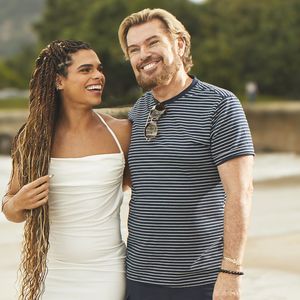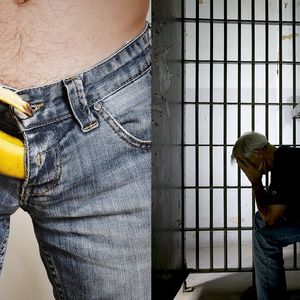Every American citizen has the right to vote, including my community of transgender and gender-nonconforming people. However, sometimes we face disenfranchisement because of unreasonable voting requirements, intimidation, or outright discrimination. Exercising our voting right requires that we fight to overcome various legal and/or prejudicial barriers.
In March 2016, the Williams Institute -- a think tank at the University of California, Los Angeles, School of Law that produces high-quality research with real-world relevance and disseminates studies to judges, legislators, policymakers, media and the public -- published the report "Voter ID Laws and Their Added Costs for Transgender Voters." This report found that "ten states require voters to provide photo identification in order to vote at the polls and mandate that those who do not do so undertake additional steps to ensure their vote is counted." Additionally, it found:
Transgender people who have transitioned to live in a gender different from their sex assigned at birth must go through additional steps and face additional costs compared to cisgender people (i.e., people who are not transgender) to meet these strict photo ID requirements. It can be difficult and costly for a transgender person to obtain photo ID that accurately reflects their gender and appearance after transition. These costs impose disparate burdens on transgender individuals who wish to vote in these states.
Fees associated with updating these documents with a change of gender can range from $8 to $358. Court orders, proof of identity and citizenship, and documentation of medical treatment, among other documents, are also sometimes required to make these changes, and some states only allow individuals to update their IDs after receiving transition-related surgery, regardless of whether they need to undergo surgery as part of their transition.
Prior analysis by the Williams Institute estimated that about 24,000 transgender people were disenfranchised in the 2014 election. Recent updates now put that figure at more than 34,000 transgender people.
Fortunately in California, the law does not require voters to present photo ID to be able to vote. However, many transgender and/or gender-nonconforming people fear that poll workers may treat them disrespectfully and therefore choose to not exercise their right to vote.
To help overcome these fears, the League of Women Voters of Los Angeles, a nonpartisan political organization that encourages informed and active participation in government, partnered with the cty of West Hollywood's Transgender Advisory Board and the city of Los Angeles's Transgender Advisory Council to provide voter registration and empowerment events for transgender and gender non-conforming people. Representatives from the Los Angeles County Registrar Recorder/County Clerk's Office also participated by providing detailed information about voter rights and how to become paid poll workers.
Further, Drian Juarez, transgender economic empowerment project manager for the Los Angeles LGBT Center, prepared poll worker tips for appropriate interactions at the polls with transgender and gender-nonconforming voters. These tips are being used by the Los Angeles County Registrar Recorder/County Clerk to train poll workers for the November 8 election. Variations on these tips about how to interact respectfully have also been provided to voting officials in several other states.
The poll worker rTips information sheet includes:
Definitions:
Transgender: Umbrella term for individuals, whose self-understanding of their gender, behavior, and how they present themselves in the world, is different from what society expects based on their assigned sex at birth.
Genderqueer/Gender-Nonconforming: Term for individuals, whose presentation in the world is different than societal expectations regarding how they "should" present themselves.
Respectful interaction at the poll station and in life:
* At the poll, if you are greeting a transgender/GNC person, you may recognize that their identity card does not match their presentation. If all other legal requirements are met, transgender/GNC people are entitled to their right to vote (California)
* Do not assume if a person is male or female.
* NEVER use words such as "it" or "whatever" when referring to someone who is transgender/GNC.
* When you are not sure of a person's gender identity, or the name shown on the identity card does not appear to match the person's gender presentation, it is OK to ask if the person has a "preferred" name and/or pronoun.
* When you are not sure what pronoun to use, stick to the person's first name or use the pronouns "they/them/theirs." (I.e. "This is John's ballot." or "This is their ballot.")
* NEVER ASK a transgender/GNC person what is their "real name."
* If you make a pronoun mistake, acknowledge the mistake, and apologize. Being honest about your nonfamiliarity with transgender/GNC people shows respect. It also lets the person know moving forward that you will recognize them as people exercising their right to vote, and will use their preferred pronoun.
* Do not assume that someone who is transgender/GNC is lesbian, gay, bisexual, or heterosexual. Gender identification and sexual orientation are different. One does not determine the other.
* Never ask transgender/GNC people about how they have sex or what their genitals look like. This is inappropriate in every situation.
* When you learn about an individual's transgender/GNC identity, keep that private. It is privileged information. You should not "out" people by revealing their identity to others.
* Validate how people present themselves by treating them respectfully just as you would for everyone else.
If you are a poll worker working with a transgender/GNC poll worker, use non-gender specific language in conversation. For example: "Are you seeing anyone," "Are you in a committed relationship" instead of "Do you have a boyfriend/girlfriend" or "Husband/wife." Rather, use "partner" or "significant other."
Since 1920 the League of Women Voters has ardently worked to enable all citizens to exercise their civil right to vote. The league goes further by helping to inform all voters on the issues before them in a nonpartisan way. Our democracy is only strong when everyone participates and makes their voice heard. Democracy is for everyone and the League has strived to make democracy work for over 96 years.
Voting is a very important way for everyone to participate in democracy -- which, of course, is for everyone. The transgender and gender-nonconforming community is determined to exercise its voting right. For more information about voting rights, go to League of Women Voters of Los Angeles.
 MICHELLE DENNIS is treasurer of the League of Women Voters of Los Angeles and a transgender advocate.
MICHELLE DENNIS is treasurer of the League of Women Voters of Los Angeles and a transgender advocate.


 MICHELLE DENNIS is treasurer of the
MICHELLE DENNIS is treasurer of the 















































































